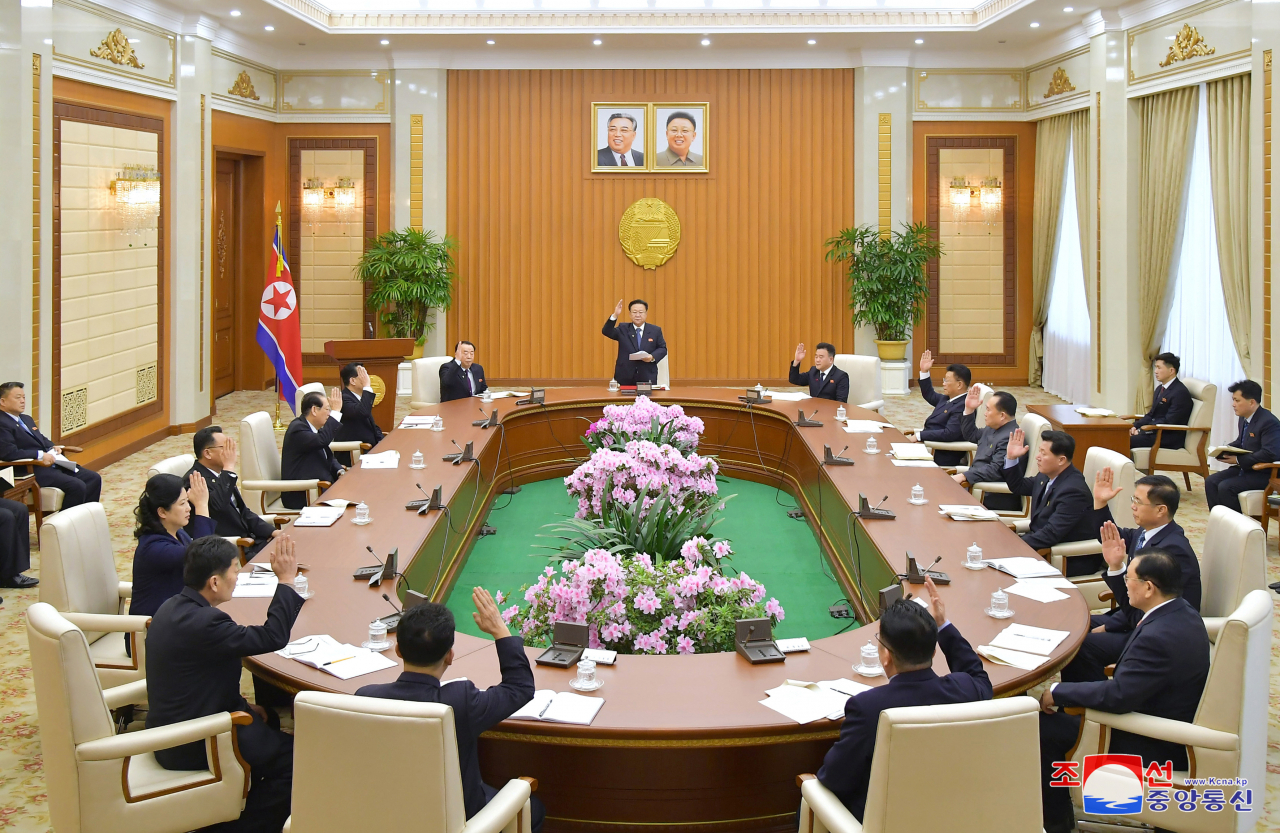N. Korea scraps inter-Korean economic cooperation laws
By Lee Jung-jooPublished : Feb. 8, 2024 - 13:40

North Korea’s rubber-stamp parliament approved the annulment of laws and agreements related to promoting economic cooperation with South Korea during its plenary meeting Wednesday, the state-run Korean Central News Agency reported Thursday.
The Supreme People’s Assembly voted to abolish the law on inter-Korean economic cooperation, the "law on the special zone for international tours of Mount Kumgang" and regulations for its enforcement and agreements on inter-Korean economic cooperation.
The law on inter-Korean economic cooperation was adopted in 2005 and was the basic legal framework that detailed the procedures and scope of economic cooperation between the two Koreas.
The law on the special zone at Mount Kumgang was adopted in 2011 and carried details on investments in the area by South Korean and other overseas entities.
In addition to scrapping laws related to the two Koreas’ economic cooperation, North Korea also unilaterally repealed agreements signed between the two countries regarding economic cooperation. However, the North did not specify which agreements it wanted to repeal.
In response to the announcement, the Unification Ministry on Thursday said North Korea’s unilateral decision to scrap laws and agreements related to inter-Korean economic cooperation was “an anticipated one.”
“As this was a decision made unilaterally by North Korea, South Korea doesn’t see this to mean that the agreements previously made between the two countries will be scrapped,” said a Unification Ministry official who wished to remain anonymous.
“However, the ministry sees that North Korea’s recent decision will only serve to isolate the country even further.”
The Unification Ministry also confirmed that inter-Korean relations are “not at a point where economic cooperation is underway,” and that the government currently “does not have any imminent actions planned for the immediate future.”
Pyongyang's decision followed North Korean leader Kim Jong-un's policy speech to the Supreme People's Assembly on Jan. 15, during which he redefined inter-Korean relations and advocated for amending the North's constitution to designate South Korea as the “primary foe and invariable principal enemy.”
During the same meeting, the Supreme People's Assembly made the significant decision to dismantle three key entities involved in inter-Korean affairs. These include the Committee for the Peaceful Reunification of the Country, which serves as the official channel for dialogue with South Korea's Unification Ministry; the National Economic Cooperation Bureau, which played a pivotal role in facilitating economic cooperation and exchanges; and the Kumgangsan International Tourism Administration, responsible for overseeing Mount Kumgang tourism projects.




















